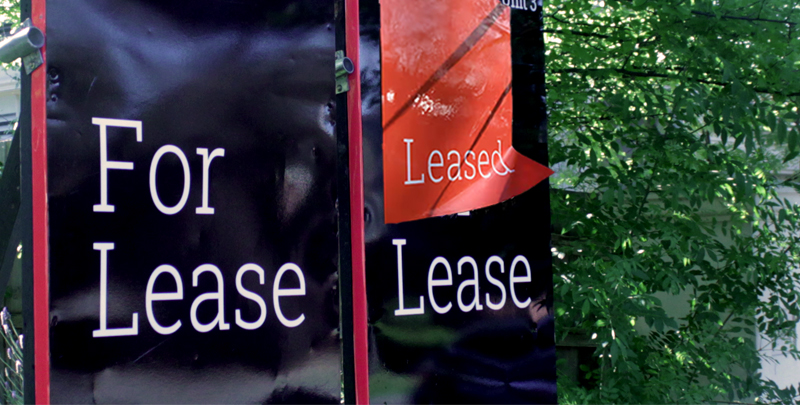As cost of living pressures escalate, home ownership becomes increasingly challenging, and the rental supply dwindles, fierce political, social, and industry debate has intensified – unfairly pitting renters against property investors.
While at Wakelin, we don’t claim to have all the answers, we do aim to cut through the emotions and rhetoric to offer practical and pragmatic insight. To explore the issue further, I spoke with Wakelin Property Advisor, Jordan Telfer.
A complex & multilayered problem
Jarrod
While the issue of rental freezes and caps has quieted down since they’ve been removed from the Federal Government’s Housing Australia Future Fund bill, it’s still an issue worth discussing.
Jordan
Yes, there’s been precedents from overseas and interstate, with Canberra having already gone down this path. While there are pros and cons with most things, it’s been shown that rent controls disincentivises owners maintaining and holding-on to property.
Jarrod
Yes, if property investors can’t derive strong income, it impacts on both the quality and quantity of properties available to rent.
Private investors feel discouraged
Jarrod
It comes at a time when many investors faced significant losses during the pandemic and provided rental reductions to tenants.
Now demand has bounced back, but investors face new obstacles. With prospective rental market interventions, changes to the Residential Tenancies Act, and upcoming land tax alterations, owners are confronting multiple headwinds.
Jordan
Even with rental caps and freezes being removed from Federal Government’s Housing Fund, in Victoria, there’s still effectively been a rental freeze for 12 months with a 12-month lease.
Then there’s the land tax COVID-19 levy. Labeled as temporary, but spanning over 10 years, it certainly has a feeling of permanence.
We’re also seeing owners corporation levies rise, and while sometimes justified, it’s another burden.
It all comes together to discourage the private investor market.
Private investors underpin housing supply
Jarrod
Private investors provide a bedrock of the rental supply. But given the current disincentives, many agents report that owners are opting to sell, especially in the apartment and townhouse sectors. These homes are often bought by owner-occupiers and subsequently taken off the rental market, further reducing supply.
Jordan
Another point of discussion is the Victorian Government’s intentions around a levy on the short term accommodation market.
The goal is to incentivise property owners out of short term rentals and into providing long term rentals, with the extra revenue created going towards government housing initiatives.
This has been mooted for areas like Mornington Peninsula, where long term renters have been largely shut out of the rental market.
However, it overlooks the fact that in places like Mornington Peninsula, properties are leased short-term for an average of around 50 days a year.
Many owners have these properties for dual purposes: short-term leasing and personal holiday use. Therefore, they’re unlikely to be pushed into putting their property on the longer term market.
The 3 avenues to boosting supply
Jarrod
Most people agree that boosting housing supply is the key to solving the rental crisis.
There are three avenues to do this, and each has a role to play.
Firstly, we have government housing, specifically social housing.
The second is private investors, an area we are closely involved in.
Lastly, there’s the development of the institutional side via build-to-rent schemes.
Starting with government housing, it often tends to be a gradual process that demands careful planning and a clear understanding of requirements – it doesn’t happen overnight and it comes with significant cost to the taxpayer.
For a long period of time, the idea has been to step away from a reliance on government housing and favour private ownership. So this approach will be seen as a step backwards by many.
The second avenue is private investors renting out their properties. And as we’ve mentioned, currently many private investors appear to be experiencing significant discouragement.
There must be a shift in mindset. There’s a perception that property investors are wealthy, greedy and wield a stick over tenants. However, around 70% of investors own just one investment property.
Many of them have persevered through the challenges of COVID-19, striving to maintain their property investments and secure their retirement, or perhaps assist their children in entering the market.
Jordan
Yes, there’s been tacit encouragement for a generation or two now for people to become involved in property investment. So there needs to be an alternative if there really is a desire to discourage the private rental market.
Jarrod
Which brings us to the institutional investment avenue. This approach is likely to yield the fastest results in terms of increasing supply. However, it does require a shift in mindset from the occupant’s perspective.This model has been more prevalent in America and Europe, but hasn’t been as common in Australia.
The encouraging aspect of it, in my view, is that even though you might wonder if these institutions will construct the right type of accommodation or if there will be an oversaturation of apartments – and there probably will be initially because it’s the easiest entry point – in the long run, they will have to adapt to meet the market’s demands.
If they don’t build the properties that tenants and occupants desire, they will face high vacancy rates and won’t produce the income that underpins the whole model. It will be interesting to see how this space evolves.
Take home message
We haven’t aimed to provide a silver bullet solution, but rather to shed light on the various elements surrounding the rental crisis.
We do believe private investors play an important role in addressing the housing and rental supply shortage.
While greater incentives and encouragement for private property investment are not required, increasing barriers and disincentives for investors would be ill advised.
Striking the right balance and removing the unfair stigmatisation of investors, will help foster a more robust housing market for all.

